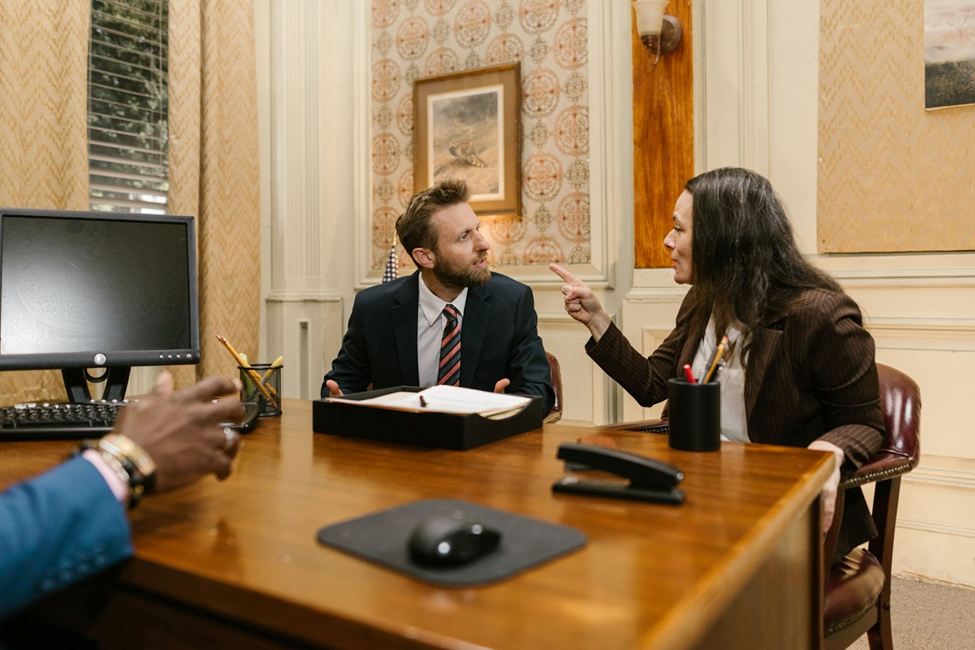As a lighthouse guides ships safely through tumultuous waters, divorce mediation is a beacon of clarity and direction in the emotionally charged sea of divorce proceedings. Navigating the complexities and emotional turmoil of divorce can feel like battling a storm. However, mediation offers a structured, neutral environment that promotes effective communication and fosters constructive resolution.

The Role of Mediation in Divorce
Divorce mediation operates as a valuable tool where a neutral party, the mediator, is instrumental in facilitating the dialogue between separating partners. This voluntary and confidential method is significantly different from the traditional litigation model. Rather than having a judge make the decisions, mediation puts the power back in the hands of the couples. This approach allows for a more bespoke resolution, tailor-made to the unique needs and circumstances of the couple involved. The heart of mediation is a respectful and cooperative process, steering clear of blame games and adversarial strategies. It’s about coming together to problem-solve, not tear apart. Each person’s voice is equally important, and the ultimate goal is an outcome that suits both parties. This personalized approach to resolution fosters a sense of ownership over decisions, reducing the likelihood of post-divorce conflicts and dissatisfaction.
Mediation can cover a broad range of issues that need resolution during a divorce. Property division, child custody, and spousal support are common areas addressed. However, it’s not limited to these areas; mediation can accommodate any area of conflict within a divorce scenario. An underlying principle of mediation is the preservation of dignity and respect, even in the midst of a challenging time. It’s not about winning or losing but finding the best path forward for everyone involved. By encouraging open and honest communication, mediation can make the stormy seas of divorce a little easier to navigate.
Fostering Constructive Resolution through Mediation
In the journey of divorce mediation, constructive resolution is a key milestone. This process is built on a foundation of respect, safety, and open dialogue, where each party gets an opportunity to voice their concerns, aspirations, and needs. The mediator’s role is pivotal here – they ensure an atmosphere where every perspective is acknowledged, considered, and valued. The process is rooted in the idea of mutual respect, steering clear from confrontations and fueling productive conversations. With the guidance of a mediator, couples are aided in recognizing and evaluating potential solutions. They learn the art of compromise and consensus, paving the way toward a mutually satisfying agreement. The strength of mediation lies in the balance it creates, allowing both parties to feel heard and understood. This balance facilitates resolution and helps maintain a positive dynamic throughout the process, even amid disagreements.
Ultimately, the goal is not to win an argument but to arrive at a resolution that honors the needs and wishes of both parties. While challenging, the process aims to foster understanding, empathy, and a spirit of collaboration, which could also be the foundation for healthier post-divorce interactions. In this process of mediation, each step forward is a step towards a more amicable and respectful conclusion to a significant chapter in one’s life. It’s about navigating the storm with dignity and grace under the guidance of a mediator, who is your lighthouse amidst the turbulent seas of change.
Empowering Communication: A Fundamental Aspect of Mediation
At the core of mediation is the power of communication. The mediator crafts an environment where both individuals are encouraged to express their thoughts, feelings, and concerns openly and respectfully. The emphasis in this arena is not about outshining the other but about nurturing a team mindset aimed at a common objective: an equitable and mutually agreeable resolution. This type of dialogue steers away from the adversarial perspective often encountered in conventional divorce proceedings. Instead, it fosters a climate of collaboration, promoting healthier, constructive exchanges. It’s not about being right or wrong; it’s about understanding each other’s perspectives and working together to find common ground.
The mediation process also paves the way for the acquisition of vital communication and negotiation skills. The benefits of these skills extend far beyond the divorce process, serving as valuable tools in future relationships and scenarios requiring conflict resolution. In this structured process, communication becomes an empowering tool, a catalyst for understanding and compromise. In the safe space created by the mediator, each party can express their needs, fears, and hopes without fear of judgment or retaliation. The power of mediation lies in transforming potential battlegrounds into arenas for constructive conversation. It shines a light on the importance of effective communication, promoting respect, empathy, and understanding. With every conversation, mediation moves one step closer to resolution, proving that effective communication is empowering and instrumental in navigating the stormy waters of divorce.

The Psychological Impact of Mediation
Navigating the choppy waters of divorce can wreak havoc on one’s emotional well-being. Amidst the storm, however, mediation stands as a beacon of psychological relief. In contrast to traditional court proceedings, which can intensify feelings of animosity and hostility, the cooperative nature of mediation fosters a climate of respect, potentially reducing the psychological distress associated with the divorce process. The dialogue promoted by mediation serves as a buffer, softening the emotional impact of the dissolution of a marriage. It’s a gentler journey through the storm, characterized by empathetic communication and understanding.
Children can also benefit emotionally from this process. The respectful and considerate communication that mediation encourages can help mitigate the potential trauma children may experience when witnessing their parents’ separation. It provides a model of healthy conflict resolution, promoting an environment that is far less volatile and more conducive to children’s psychological stability. Moreover, the sense of control and ownership given to the couple in the decision-making process can alleviate feelings of helplessness and despair often associated with divorce. The empowerment offered by mediation can foster a sense of agency, which in turn may enhance psychological resilience during this difficult time.
Through its focus on open communication and mutual respect, mediation seeks to transform the emotional landscape of divorce, serving as a guiding light in the storm. It allows for a shift in perspective, reframing divorce not as a battleground but as a platform for dialogue and cooperation. As such, the psychological toll of divorce may be significantly reduced, enabling individuals to navigate through the storm with greater ease and emotional stability.
Mediation: A Cost-Effective Divorce Solution
Navigating the financial waters of a divorce can be as challenging as dealing with the emotional aspects. Traditional litigation, while offering a path to resolution, can place a significant financial strain on both parties. The costs associated with hiring attorneys, court fees, and other related expenses can rapidly accumulate, making an already stressful situation even more daunting. However, mediation’s a beacon of hope in these challenging financial waters. As a less adversarial approach, it typically involves fewer professionals, reducing the cost significantly. With the guidance of a mediator, couples can have productive discussions and arrive at decisions without the need for an expensive courtroom battle. The process is generally faster and more efficient, which further curtails costs.
Mediation provides an arena where couples can make financial sense decisions for their unique situation. Instead of leaving their financial future in the hands of a judge, couples can proactively discuss and agree on a financial arrangement that works for both parties. The financial transparency that mediation promotes can prevent misunderstandings and future disputes, saving even more money down the line.
In addition to financial savings, mediation can also prevent the emotional toll of a drawn-out and costly divorce process. Therefore, mediation preserves your wallet and protects your emotional well-being. In a world where divorce often equates to financial stress, mediation stands as an affordable, effective, and efficient alternative. It’s a financial lighthouse guiding couples through the potentially rough seas of divorce towards a more secure financial shore.

Transforming Divorce: The Lighthouse Amidst the Storm
Navigating the stormy waters of divorce can be emotionally challenging and complex. Mediation serves as a lighthouse, offering guidance, clarity, and a way towards peaceful resolution. It bestows upon separating couples the power to control their destiny, paving the way for constructive dialogue and mutual respect. This approach mitigates the emotional burden, turning a seemingly chaotic divorce into a structured and manageable journey. Mediation shines a guiding light on the path toward healing and the commencement of a new chapter, embodying a beacon of hope in the midst of turbulent times. Through fostering better understanding, communication, and resolution, mediation effectively transforms the landscape of divorce, serving as a calming influence in the storm. The result is the resolution of a legal issue and the start of a healing process. The lighthouse of mediation helps navigate the storm, illuminating the path to a brighter, peaceful horizon.



